The Difference Between William McKinley’s American System School of Protective Tariffs and TodayPart III of Make Whose America Great Again? series“Two systems are before the world; the one looks to increasing the proportion of persons and of capital engaged in trade and transportation, and therefore to diminishing the proportion engaged in producing commodities with which to trade, with necessarily diminished return to the labor of all; while the other looks to increasing the proportion engaged in the work of production, and diminishing that engaged in trade and transportation, with increased return to all, giving to the laborer good wages, and to the owner of capital good profits… One looks to pauperism, ignorance, depopulation, and barbarism; the other in increasing wealth, comfort, intelligence, combination of action, and civilization. One looks towards universal war; the other towards universal peace. One is the English system; the other we may be proud to call the American system, for it is the only one ever devised the tendency of which was that of elevating while equalizing the condition of man throughout the world.” – Henry C. Carey, Harmony of Interests, 1851 The American System to which Carey is referring in this quote is the school of economics to which protectionism originates from, largely recognised as officially beginning with the works of Mathew Carey (Henry C. Carey’s father) and Henry Clay, following the economic schools of thought of Alexander Hamilton and Benjamin Franklin. The American System of economics did not in fact originate within the United States, but within France under the Dirigisme school of economics, also known as Colbertism as well as the German school of economics known as Cameralism, however, the American school did greatly expand and further build upon this foundation. The American System’s philosophical outlook as a political science arose from the work of Gottfried Leibniz. [For more on this refer to the very informative RTF lecture by Sam Labrier titled “Colbert, Leibniz and Vattel: The Cameralist Roots of the American System”.] Leibniz was in fact in direct opposition to the philosophy of John Locke, who was heavily promoted by the Anglophiles within the United States as the philosophical system they should adopt. This was rejected by the followers of Benjamin Franklin, Alexander Hamilton and the protectionist school of economics that followed. However, Locke’s system was largely adopted within the Southern states, which not coincidentally was where all the cotton slave plantations were located in service to the British Empire. As we can clearly discern from the name, protectionism is referring to a form of “protection” to the American economy, but protection from what exactly? It was protection from the British Empire’s system of free trade – quite explicitly so as we will see. This has been the core battle within the United States, as to which school of economics it would ultimately adopt as its philosophical outlook. As is made clear by the opening Henry C. Carey quote, it comes down to how you view humankind, the worth of the individual; and how you define wealth, value, liberty and happiness which differentiates the schools of economics. The two systems, the British vs. the American system as defined by Carey are inherently opposed to one another, they are not compatible with one another, and we cannot say with honesty that both can rule over a nation’s policies. Suffice to say, if this is indeed true, we presently live in a very confused world in terms of our understanding of how American System economics should operate, if indeed we are to return to a protectionist orientation amidst rampant free trade. The leaders of protectionism throughout the 19th century into the 20th century, the latter notably under William McKinley, were not shy to write down or make speeches unleashing eviscerating criticism of the British Empire’s system of free trade. Thus, we would do well to understand what exactly they were going to battle with in this regard, no? The leaders of the protectionist school also made it very clear in their writings that not all tariffs are made equal and thus are not always beneficial to boosting domestic industry, thus the generalised use of the term “tariffs” that is being bandied about lately does not mean that only good can come from it, and thus all judgement and criticism should exit the building, lest you be called unpatriotic. In fact, not all tariffs are protective to domestic industry, as we shall soon see. In order to help clear this confusion, I think there is nothing more suitable than for us to review the very words of these men themselves who formed and promulgated this protectionist school within the United States. The difference between this school and the application of the so-called protective tariffs of today will be most stark with the words of William McKinley (1843-1901) himself, who is often cited today despite great disregard to what he was actually going to battle with - until his untimely assassination. Mathew Carey, one of the founders of the American System of economics and ProtectionismLet us first start with the life and writings of Mathew Carey (1760-1839). Carey had been kicked out of Ireland for “defaming the British” when he recirculated Jonathan Swift’s “Proposal for the Universal Use of Irish Manufactures.”[1] He traveled to France where he met Benjamin Franklin and French General Marquis de Lafayette who fought for American independence in the American Revolution and was a distinguished war hero. In France, Carey began a printing house and circulated Benjamin Franklin’s Notes from America to leading humanist circles throughout Europe to keep them informed of the progress of the American Revolution. The attempt to equip the European population, notably the French via the revolution launched in 1789, with the tools needed to defeat oligarchy ultimately failed due to London’s sabotage, which included the direct funding of the Jacobins and their Reign of Terror. Yes, you read correctly, the Jacobins who transformed the French revolution into a bloodbath of terror were directly backed and funded by the British and this was the reason why the French were unable to have a successful revolution modeled off of what the Americans had accomplished just a few years prior. The mayhem and confusion that came out of the French Revolution is what brought in Napoleon, who at first promoted himself as a man of the people, only to declare himself Emperor of the world a few years later. For more on this refer here. With the failure of the French Revolution, Carey focused his attention on working for Franklin’s circles within the United States. Upon Carey’s arrival to America, Franklin helped him to start his own publishing business and bookshop in Philadelphia, Franklin’s hometown, with the aid of Marquis de Lafayette. Carey became an ardent supporter of Alexander Hamilton and continued his collaboration with Franklin until his death. Contemporary opinion placed Mathew Carey second only to Alexander Hamilton as the nation’s leading protagonist for the ‘American System’. And Mathew Carey, under the encouragement of Franklin, founded the nation’s first book publishing company in order to help circulate and organise the population towards these very important ideas. W. Allen Salisbury writes in “The Civil War and the American System”:
Thus, to be clear here, Mathew Carey who is among the founders of the American System school of economics and its theory of protectionism was for Hamilton’s National Banking, and thus opposed to Aaron Burr, as well as the US Treasury Secretary Albert Gallatin under both the Madison and Jefferson administrations. In fact, Burr and Gallatin were part of the treasonous faction within the United States and were provably working for British intelligence. For more on this refer here. Salisbury continues:
Mathew Carey writes in his “Autobiographical Sketches in a Series of Letters Addressed to a Friend”:[2]
Finally, Salisbury writes:
In Mathew Carey’s “Addresses of the Philadelphia Society for the Promotion of National Industry” published throughout the year 1819, he focused on a critique of Adam Smith’s “Wealth of Nations” and a defense of the American System as understood under the school of Alexander Hamilton. These addresses by Carey were effective at keeping the United States committed to Hamilton’s economic policy until Andrew Jackson’s election in 1828. Jackson, contrary to what you might have heard in some speeches from Trump, was not for protectionism or the American System school of economics to which it stems from. In fact, under the Jackson presidency from 1829 to 1837 there was a policy of British free trade that was implemented to the benefit of Wall Street, and protective tariffs were decreased substantially. Jackson left the American people with one of the worse depressions they have ever suffered in their entire history, the Depression of 1837, otherwise known as the Panic of 1837, where millions of Americans lost their jobs and went hungry. [Note to the reader: It would be useful here to know a little of the origins of Wall Street which will give you a clearer idea as to what their loyalty and outlook was always beholden to. Wall Street was quite literally named after an actual wall built in New Amsterdam, the 17th century Dutch settlement at the southern tip of Manhattan. More specifically, the wall was constructed by the Dutch West India Company as a defense during the Anglo-Dutch wars. The Dutch, along with the Portuguese, had begun a brutal colonisation of other parts of the world and the trading of things, including slaves, that had superseded the British. It was the Dutch colonists who could be found in almost every part of the “savage” world and were the most powerful empire for some time in service to the Kingdom of the Netherlands. The Dutch West India Company worked in service to the Bank of the Netherlands. It was this model to which the British had modelled themselves directly off of in the establishment of their British East India Company and their Bank of England. There was a period of territorial warfare between the two for the possession of the Manhattan region. It was from these institutions that the slave market was first introduced in 1711, with the sale and rental of enslaved Africans and Indians.[3] [4] This market operated from 1711 to 1762 at the corner of Wall and Pearl streets. It was the natural outcome of a system which held the maxim of “buying cheap and selling dear” as its core philosophy. This outlook has never changed, and after the decay of the Dutch empire, still lived on within the British empire’s system of free trade, and thus it is no coincidence that Wall Street is very much the child of the City of London. For more on the role of the British East India Company being responsible for the introduction of slavery into the United States refer here. And it is also thus, very much in character that the pro-Wall Street president Andrew Jackson was responsible for the Trail of Tears, one of the largest genocides committed against the Native American people. You can read more about this here. Mathew Carey writes:[5]
Carey is stating here that this policy of Adam Smith’s free trade, in buying cheap and selling dear was making the British Empire wealthier at the expense of the United States, a system under which its industry could not function - leading to the impoverishment of the nation. Carey continues:[6]
Thus, to stress here Carey is stating that it is this Adam Smith maxim that “trade will regulate itself” that is in fact in opposition to protectionism. Thus, the United States was being encouraged to have its industry gutted by British free trade and that government should not intervene in invoking protectionism that would allow their industries to grow. This is a point that continues to be a source of confusion today due to the continued distortion of the real scientific teachings of political economy that have conscientiously been suppressed by the adherents to the British system and have written the true American System teachings out of the textbooks. Clearly you cannot have both, you cannot have “trade regulate itself” and protectionism, they are the anti-thesis of the other. Thus, the claim that you can have both is a manipulation, a form of doublethink, going on today that is very clearly false and calls for the individual to take a closer look at what is in fact truly going on. As we can see with the above graph, it was during the presidencies of Andrew Jackson (1829-1837) and his colleague from the same pro-British free trade/Wall Street school Martin Van Buren (1837-1841) that protectionism fell dramatically. There was a slight increase during the presidency of John Tyler but again fell until the Morrill Tariff which dramatically bolstered protectionism. The Morrill Tariff was done under Henry C. Carey, Mathew Carey’s son, and chief economic advisor to Abraham Lincoln. Thus, we can see there is a very clear trend going on depending on the school of economics the president is beholden to. It is a direction, either up or down in its trajectory for the manufacturing industries of a country and its true wealth and prosperity. It is a battle that has been waged since the very beginning of the nation’s origin. And it is not a coincidence that we see protectionism take a dramatic plunge from the 1950s on, when a consistent policy of deindustrialisation was taking place. Such a policy that resulted in the creation of America’s Rust Belt. After nearly 70 years of a policy that has moved towards free trade policies and the belief that “trade will regulate itself” with religious zeal and that Adam Smith’s invisible hand has replaced God and any morality in how an economy is to be run; and all this at the expense of protectionism (for you can only have one) the jury is out – it has been out for decades but many were too foolish to notice. There should no longer be any confusion as to where the source of the problem lies. Free trade has done just what the leaders of the American System have been warning us all along, that it will gut your industries, expand an unpayable debt, and impoverish the nation. Mathew Carey continues in his “Addresses of the Philadelphia Society for the Promotion of National Industry”:
What Mathew Carey is stating here, is that protective tariffs may be in place, but if they are executed in a manner or level that renders them inefficient, and thus ineffective, it creates the same outcome then as if “trade had been allowed to regulate itself.” In other words, an inefficient tariff system services British free trade. We can see from the drastic plunge in protectionism under the presidencies of Jackson and Van Buren that this is exactly what happened. It rendered the protectionism that was put in place prior ineffective and was the same as if British free trade were allowed free reign over American industries. This is why it is concerning when Trump promotes Andrew Jackson as a president who was for protectionism, for this could not be more false, and calls into question whether Trump simply does not understand this, or is purposefully muddying the waters. Carey continues:[7]
Henry Clay’s Advocacy for ProtectionismAs already mentioned, along with John Quincy Adams and Mathew Carey, Henry Clay (1777-1852) is considered one of the founders of the American System of economics following the school of Alexander Hamilton. Due to the length of this paper, I won’t go into too much detail of his life and role, however, an excellent resource to read more on this subject would be Anton Chaitkin’s work, including the legendary “Treason in America: from Aaron Burr to Averell Harriman” which can be read for free on archive.org, as well as his newly published two volume book series “Who We Are" which you can purchase via his Substack. On February 2, 3 and 6th, 1832, Senator Henry Clay of Kentucky delivered a speech entitled “In Defense of the American System, Against the British Colonial System.” Clay had recently completed a term as U.S. Secretary of State (1825-1829) where he ably advanced and defended the joint interests and independence of the new republics in the North and South America, urging the adoption of anti-colonial principles of the American Revolution for all developing nations. Something we would do well to remember and revive today in contrast to Marco Rubio’s tour of Latin American countries recently. Anton Chaitkin writes in his paper “Henry Clay: National Development Must Take Precedence Over Debt Payments”:
To be clear here, of course one wants to pay off their debt, and a nation that owes little debt or none is best. However, there were two outlooks to this, one was the use of debt as productive credit. What this essentially comes down to is that if you borrow money to invest in projects, namely industry, that will in time create a much higher return then the loan you required, this is considered productive credit. However, if a nation is borrowing without much thought into investments that will give a higher return, such as in crucial industries, and prioritises the payment of said debt, it creates a sinking ship. There will be less and less revenue generated, and more and more debt accrued, which again would have put the United States into the “good graces” of Britain who was happily buying up this debt through Wall Street bonds. In addition, the debt should never be prioritised over the investment of crucial and essential industry, which was being demanded by the Anglophile camp within the United States during Clay’s time. In Henry Clay’s speech delivered in 1832 titled “In Defense of the American System, Against the British Colonial System” he states:
Thus, as Henry Clay makes the point most abundantly clear, it was well known by the British system advocates of free trade that this had always as its intention the ruination of other nation’s manufacturing industries and to reduce them to a state of a colony, a raw materials exporter, namely agricultural production, the natural outcome being plantations reliant on cheap labor and slavery. As we can see, already by Henry Clay’s time the South was strongly aligning with British free trade interests and was reducing itself to a raw materials exporter, namely cotton, despite this being utterly against their own welfare and interests to which there continues to be confusion over to this day. In order to clear the matter up in a few sentences, I would like to share a quote from Lord Robert Cecil, who later became Marquess of Salisbury, a very prominent position in British peerage and who served three times as Prime Minister of Britain. He had this to say in Parliament during the American Civil War:
It was the battle between these two opposing economic schools of thought, that of the British System vs. the American System which led the country into the most bloody and costly war it has ever fought, the American Civil War. With this I will end the first instalment to this overview of leaders of the American System due to the length of this paper. The second instalment will focus on Henry C. Carey and William McKinley which will incontestably clarify for the reader how the present application of tariffs that is being executed today within the United States is in fact not of the same school as the American System leaders. The second instalment will be published soon. Cynthia Chung is the President of the Rising Tide Foundation and author of the books “The Shaping of a World Religion” & “The Empire on Which the Black Sun Never Set,” consider supporting her work by making a donation and subscribing to her substack page Through A Glass Darkly. Also watch for free our RTF Docu-Series “Escaping Calypso’s Island: A Journey Out of Our Green Delusion” and our CP Docu-Series “The Hidden Hand Behind UFOs”. Footnotes:[1] The full title of Swift’s 1720 pamphlet was: “A proposal for the universal use of Irish manufacture, in clothes and furniture of houses, etc, utterly rejecting and renouncing every thing wearable that comes from England” [2] Pg. 49 [3] Slave Market Archived March 6, 2013, at the Wayback Machine. Mapping the African American Past, Columbia University. [4] Peter Alan Harper (February 5, 2013). How Slave Labor Made New York Archived January 31, 2021, at the Wayback Machine. The Root. Retrieved April 21, 2014. [5] Addresses of the Philadelphia Society for the Promotion of National Industry [6] Ibid [7] Ibid [8] Covering the period from the mid-17th century through to the British Government's decision to allow the free exchange of gold, and presenting documents, primarily from the UK, that relate to the establishment of gold coinage as the centrepiece of the British financial system. Source: https://www.gold.org/about-gold/history-of-gold/gold-as-money/history-of-gold-back-to-1600/the-rise-of-the-gold-standard#:~:text=Covering%20the%20period%20from%20the%20mid-17th%20century%20through,as%20the%20centrepiece%20of%20the%20British%20financial%20system. [9] The Tariff of 1824 was a protective tariff in the United States designed to protect American industry from cheaper British commodities, especially iron products, wool and cotton textiles, and agricultural goods. The second protective tariff of the 19th century, the Tariff of 1824 was the first in which the sectional interests of the North and the South truly came into conflict. The Tariff of 1816 eight years before had passed into law upon a wave of American nationalism that followed the War of 1812. But by 1824, this nationalism was transforming into strong sectionalism. Henry Clay advocated his three-point "American System", a philosophy that was responsible for the Tariff of 1816, the Second Bank of the United States, and a number of internal improvements. John C. Calhoun embodied the Southern position, having once favored Clay's tariffs and roads, but by 1824 was opposed to both. He saw the protective tariff as a device that benefited the North at the expense of the South, which relied on foreign manufactured goods and open foreign markets for its cotton to which they sold to the British and relied upon cheap labor and slavery.
|
Monday, June 2, 2025
The Difference Between William McKinley’s American System School of Protective Tariffs and Today
Subscribe to:
Post Comments (Atom)
If you're feeling a new energy, this is why.
The time for hesitation is over. ...

-
Greetings everyone ͏ ͏ ͏ ͏ ͏ ͏ ͏ ͏ ͏ ͏ ͏ ͏ ͏ ͏ ͏ ͏ ͏ ͏ ...
-
Rising Tide Foundation cross-posted a post from Matt Ehret's Insights Rising Tide Foundation Sep 25 · Rising Tide Foundation Come see M...
-
March 16 at 2pm Eastern Time ͏ ͏ ͏ ͏ ͏ ͏ ͏ ͏ ͏ ͏ ͏ ͏ ͏ ͏ ͏ ͏ ...
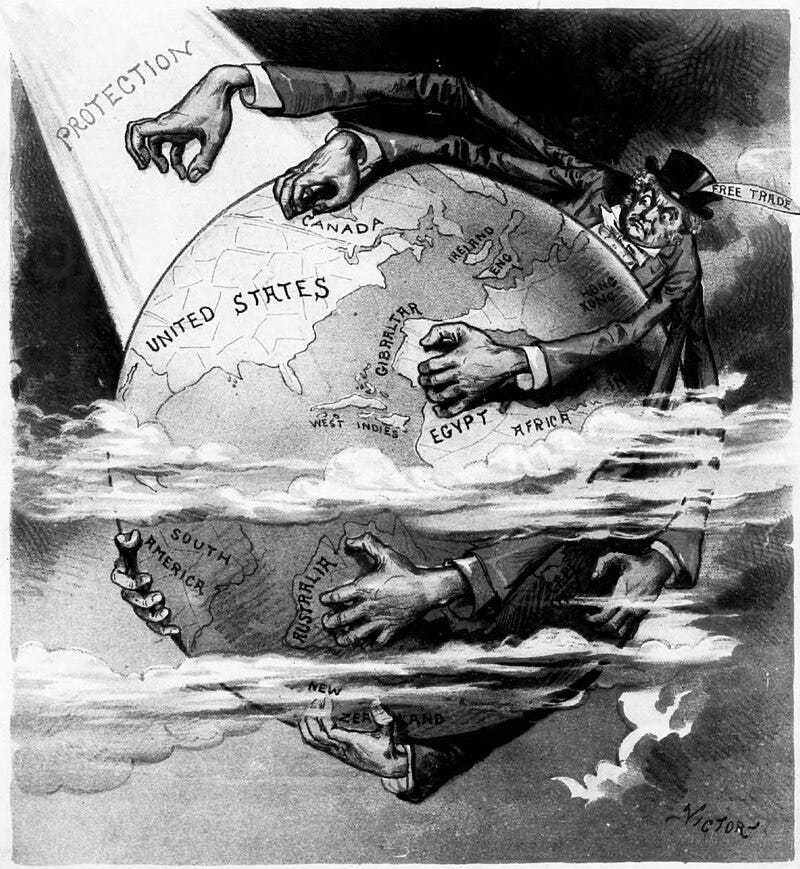
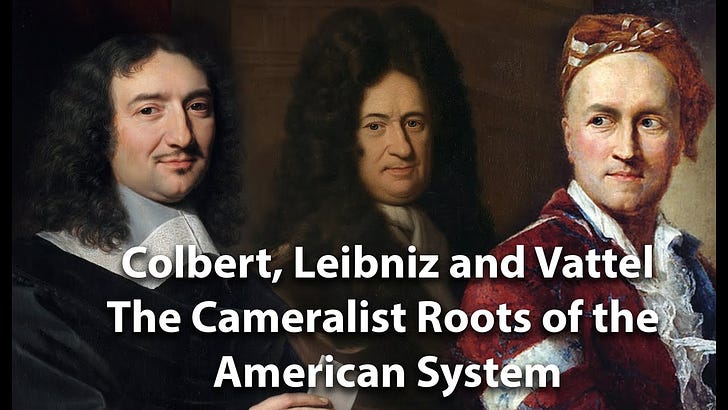
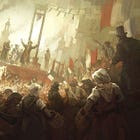
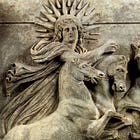
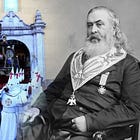
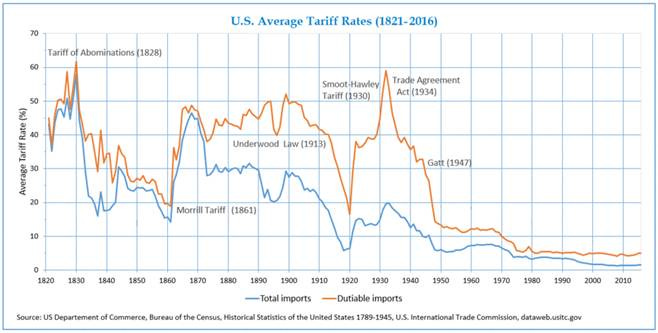

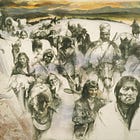
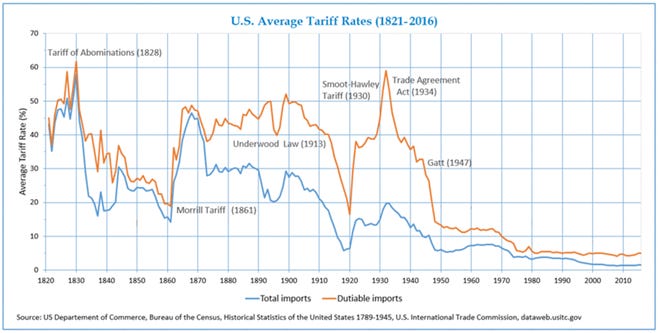
No comments:
Post a Comment